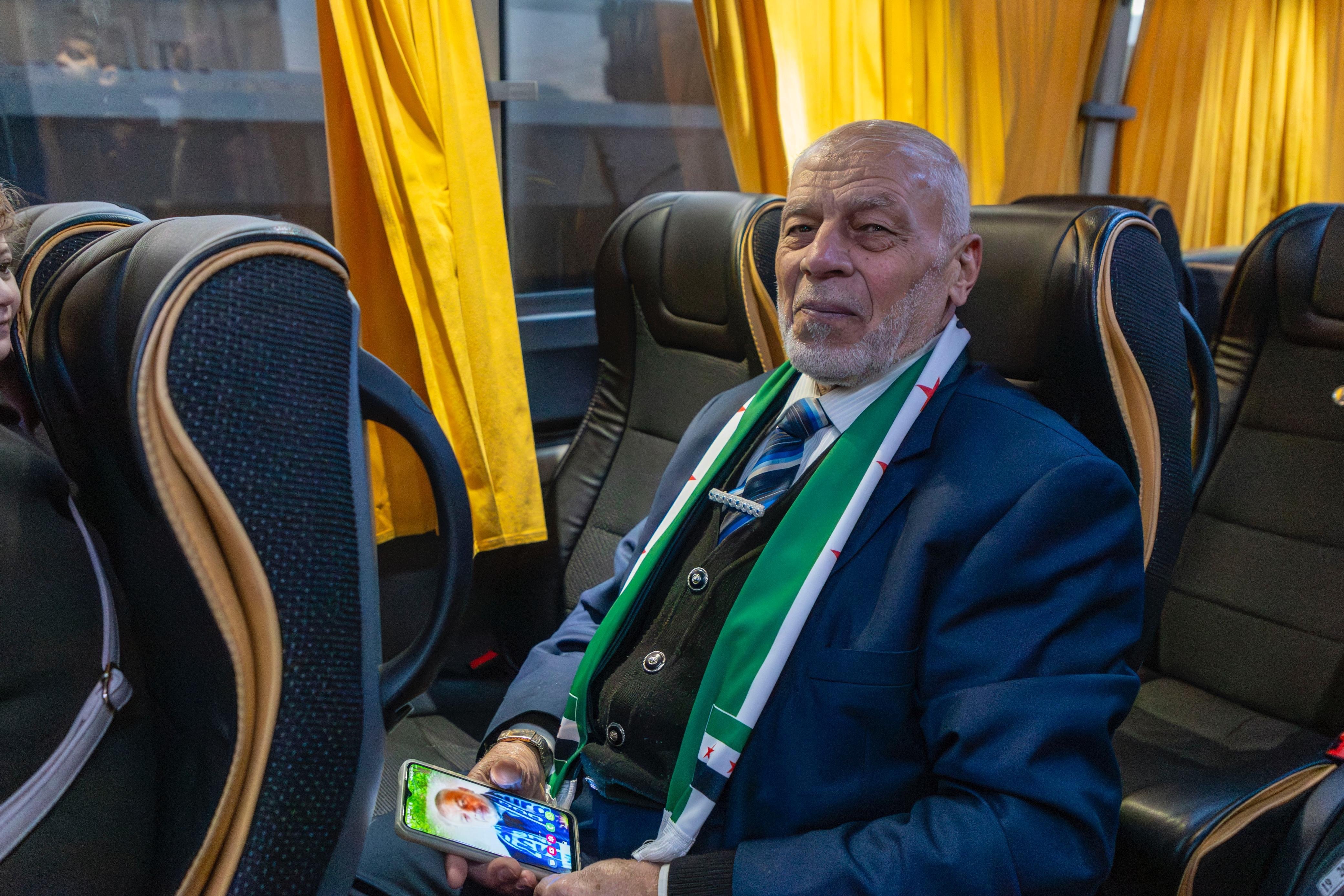Syrians, risking everything to flee war, find chilly reception in Europe
Syrians, risking everything to flee war, find chilly reception in Europe

ATHENS, Greece, December 27 (UNHCR) - It's been a heartbreaking, life-threatening journey for Syrian refugee Rajaa and her three children to reach this Athens basement lit by only a small lantern and a candle. It's no wonder that even though the family is sheltered from the rain outside, they still don't feel secure.
The 42-year-old woman, her teenage son and two small daughters left war-ravaged Syria for Lebanon in a few months ago to join her husband, who was working there. They were cheated by a smuggler who promised to get them to Sweden - but disappeared with their precious $30,000.
Using the last of their cash, her husband sent the four of them on a circuitous overland journey that ended with them boarding an inflatable dinghy in Izmir, Turkey, while he remained behind in Lebanon. There were 35 men, seven women and seven children on the unseaworthy craft - all trying to evade a 12.5-kilometre heavily guarded wall along the border between Greece and Turkey.
After more than three hours at sea, they were less than 100 meters from the Greek Coast when the dinghy began to sink. At the same time, Rajaa says, a Greek Coast Guard vessel shone a spotlight on them, but did not rescue them.
"We almost lost Leima," she says, referring to her two-year-old daughter. "It's only a miracle that we are all alive. Each man took care of one child or one woman and swam us to the shore." She says when they reached the shore, cold, wet and exhausted, they were met by men in uniform pointing guns at them.
More and more Syrians are taking to boats to try to reach Europe after construction of the wall and increased border patrols over the last 16 months. Greek statistics show more than 7,600 Syrians have been arrested for illegal entry or stay during the first 11 months of this year.
With more Syrians reaching the shores of Europe, "no one expects Greece to take on the entire burden," says Laurens Jolles, UNHCR regional representative for Southern Europe. "UNHCR is making every effort to remind the European community of the need to show some solidarity and responsibility sharing with countries at the external borders of the European Union (EU)."
He adds that Syria is "the biggest humanitarian emergency at this moment" and despite the challenges, the solution is not to turn away asylum-seekers.
UN High Commissioner for Refugees António Guterres has also expressed concern about serious gaps in the protection of Syrians arriving in Europe and has urged a more generous and consistent approach to Syrians seeking shelter and asylum in Europe.
After landing on that Greek beach, more travails followed until the whole family, including 17-year-old son Hamadheir and five-year-old daughter Lamar, arrived in an Athens district where many Syrians live. They spent one cold night sleeping rough in a park until a Palestinian showed Rajaa's family - who is of Palestinian origin - the abandoned basement they now call home. It has no running water, electricity or heating, but it offers protection from the elements.
What makes her feel insecure, though, is the knowledge that although Greece allows Syrians to stay in the country for six months without threat of deportation, they have no other rights.
"Syrians can apply for asylum in Greece but feel it is pointless as they do not want to stay here," says Dr. Maarouf Alobeid, a Syrian doctor who has lived in Greece for 30 years and who has treated little Leima. Along with others in the Syrian community, the doctor brings food and medicine to the family.
He says Greece's five-year economic crisis discourages many Syrian refugees from staying here. They get little government support, he says, and many prefer to move on to other European countries where they may have relatives.
This, however, can be a problem, says UNHCR's Jolles. "It is very difficult for these people to move around legally in Europe," he says. "European family reunion policies must be more flexible, particularly at times of emergency like the one we are living in relation to the exodus from Syria.
Rajaa feels she cannot go back - her house in Syria was destroyed by shelling - and she cannot go forward. She would like to join her oldest son, 22, who is a recognized refugee in another European country, but that's impossible under current EU regulations.
Looking into her single candle in her cold basement, she sighs: "Only God can help us."
By Ketty Kehayioylou in Athens, Greece








